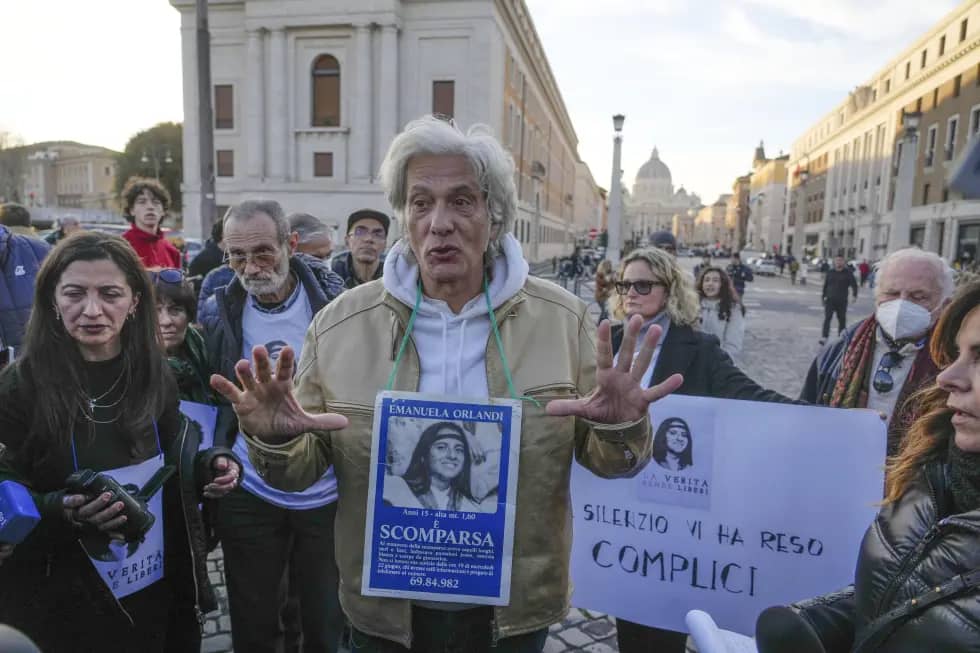ROME – Archbishop Domenico Sorrentino, whose diocese of Assisi will host Pope Francis this weekend for an event featuring 1,000 young people to discuss reshaping the global economy, has hailed the discussion as “prophetic” and in keeping with the vision of the city’s most famous saint.
Speaking to Crux, Sorrentino said the pope’s decision to hold a conference about the economy in Assisi is “a prophetic choice.”
Assisi, he said, was appropriate because it was in the city that the pope’s namesake, Saint Francis of Assisi, walked through the door of the bishop’s residence and “stripped himself of everything, all earthly goods…he stripped himself of earthly goods not to refuse the economy, but to refuse the bad economy.”
Drawing on the example of Francis of Assisi, the economy, Sorrentino said, must be rebuilt into one that is “an economy of gift and not only of interest and profit; an economy that must be a human economy, the men and women, the human person, at the center; an economy that must be an economy not only for the poor, but with the poor, so a participating economy.”
“It’s so evident that the economy in the world has many problems. It doesn’t work for many millions of people who are deprived of their dignity, of the most important realities for life worthy of a human being,” Sorrentino said, saying this is a problem not only for the church, but “for mankind.”
“We must face, tackle, this problem,” he said.
Two years ago, Pope Francis announced plans to travel to Assisi for a major event called “The Economy of Francis,” which would feature young economists, entrepreneurs, and change makers from across the world to discuss the formation of a more fair and fraternal economy.
That gathering was postponed due to the coronavirus pandemic, forcing participants to lead discussions and working sessions online to prepare for the in-person gathering, which is taking place in Assisi this week, Sept. 22-24, and which has drawn roughly 1,000 young people from over 100 countries around the world.
Pope Francis will travel to Assisi Saturday for the final day of the event, where he’ll give a speech and sign a pact with the young participants for the forming of a new, more just economy.
Throughout the three-day event, participants will take part in workshops and “thematic villages” aimed at exchanging ideas and experiences gathered over the past two years, and they will also have the opportunity to meet leading international personalities such as Vandana Shiva, Jeffrey Sachs, Kate Raworth, Gael Guraud, Sabina Alkire, Helen Alford, Vilson Groh and Stefano Zamagni.
In his interview with Crux, Sorrentino said the event will provide an impulse for “a new economy,” one that is stripped of the injustices that harm the poor and vulnerable, and the environment.
He noted how Saint Francis symbolically stripped himself of his clothing and embraced a life of poverty at a room in the bishops’ residence of Assisi, now known as the Sala della Spoliazione.
Recently, the archdiocese excavated the original door that Saint Francis walked through when he entered the bishops’ residence 800 years ago.
“So, we have the possibility to present to young people this place, so inspiring, and to tell them to come here and have courage to cross this door as Francis did,” Sorrentino said.
When Pope Francis visited the city for the first time after his election in 2013, he said that like Saint Francis, the church must also “strip herself” of attitudes such as worldliness, arrogance, vanity, and pride.
Nine years later, with the door newly unveiled, the city of Assisi is prepared to “strip” again, ridding the global economy of unsustainable habits that are harmful to both people, and the environment, Sorrentino said.
“We are accustomed to having a lifestyle that doesn’t work. We are accustomed to having too many things and to using too many things that are not really important,” he said. “We must learn a new lifestyle that is more respectful of the environment.”
The world right now also faces an energy crisis, so “we must do something, it is very important to change our lifestyle,” Sorrentino said, arguing that this is not just a political or economic issue, but is rather a problem “for everybody.”
He also said companies must strip themselves of a mentality that looks “only at their profit,” but rather, “we must have a new view where the environment and the poor, the dignity of the person, are at the center of a company’s way of thinking.”
Labor and trade markets must also be rethought, he said, saying each person can contribute to this change by asking themselves questions when they buy something, like “How has this thing I am buying been produced? Have the people who made this product respected the environment? Have they respected people?”
“If we are aware of this, we can make good choices, and also orientate production and trade, because production and trade depend on our choices,” Sorrentino said, arguing that in this regard, “we have many things to do” and “to strip.”
Young people have a privileged role to play, and “can do much with their enthusiasm,” he said, voicing hope that participants will maintain and grow the network they have formed at the event, and in the years leading up to the in-person gathering.
“With the grace of God, and with this great inspiring message of Saint Francis, and also the encouragement of Pope Francis, they will make a great work in the realm of the economy,” he said. “They are, let’s not forget, young economists. They are not just people, they are economists, so they have a future and a future built together can really be a great future.”
Follow Elise Ann Allen on Twitter: @eliseannallen















